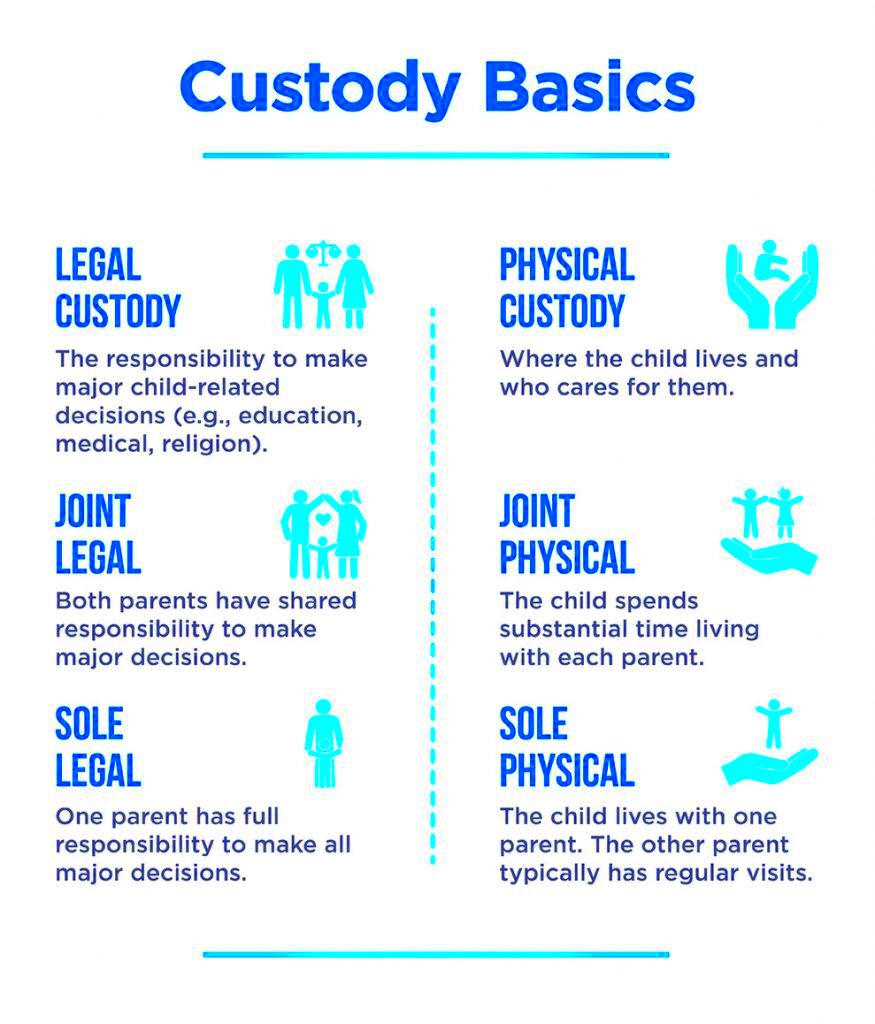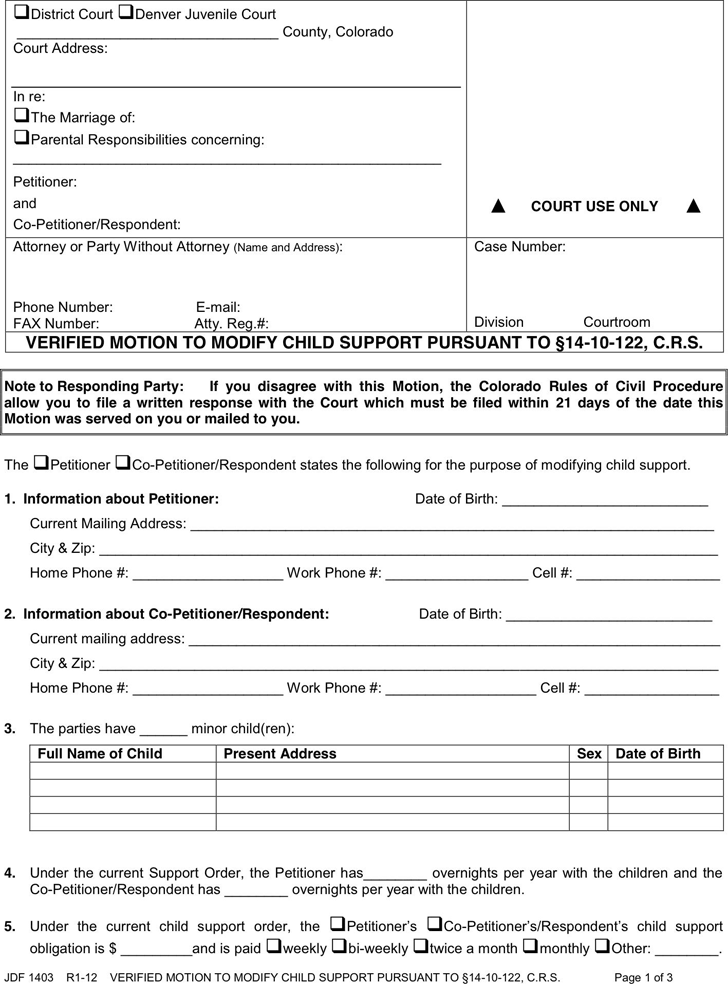Colorado’s Child Custody Law Revisions and Enforcement
In Colorado the child custody laws have been updated to enhance the well being of children and simplify the custody process. These changes align with a growing focus on prioritizing the best interests of children and making the legal system more accommodating to families. Having dealt with the intricacies of family law I have witnessed how these revisions can affect families.
The recent updates bring about adjustments in custody determination methods, fresh guidelines for parenting plans and more transparent enforcement protocols. These modifications aim to ensure that decisions are made with an emphasis on the well being of the child and to streamline the process for parents involved. This is a moment for both family law professionals and families as these changes hold the potential to make custody arrangements more equitable and centered around the needs of children.
Key Provisions in the Latest Revisions

Recent updates to Colorados child custody laws introduce a number of significant modifications.
- Revised Best Interests Standard: The new laws place even greater emphasis on the child’s best interests, incorporating factors such as emotional ties between the child and each parent, the parents’ ability to provide a stable home, and the child’s preferences if they are old enough to express them.
- Mandatory Parenting Plans: Parents are now required to submit detailed parenting plans, which must outline the time each parent will spend with the child and how decisions about the child’s welfare will be made. This aims to reduce ambiguity and prevent disputes.
- Enforcement Enhancements: The revisions introduce stronger mechanisms for enforcing custody agreements, including faster court procedures and more robust penalties for non-compliance.
- Increased Support for Mediation: There’s a push towards using mediation to resolve custody disputes before they reach the courtroom, which is intended to reduce conflict and promote cooperative parenting.
These adjustments show an increasing awareness of the significance of having stable and clear custody arrangements. They also highlight a dedication to easing the emotional burden on both children and parents during what can be a really tough period.
Impact of Revisions on Custody Agreements

These changes are poised to greatly influence the way custody agreements are created and upheld. Based on what I’ve seen the updated rules are expected to result in custody arrangements that are fair and thoughtfully crafted. Parents will be required to take a approach in outlining their parenting strategies and showing their dedication to their childs welfare.
One impact of this could be the improvement in communication and a decrease in conflicts. By mandating parenting plans and strengthening enforcement methods parents may feel more prepared to handle the challenges of custody situations. This might result in changes and reduced disagreements over the long run.
Nonetheless adapting to these new rules could be a bit tricky. Parents familiar with the system may require some time to get accustomed to the fresh requirements and procedures. For certain individuals this could entail extra costs or seeking assistance to navigate through the compliance process.
In summary though these modifications signify a change in custody procedures their goal is to establish a system that is more supportive and equitable for families. By prioritizing the well being of children and improving enforcement these updates seek to promote outcomes for kids and smoother co parenting arrangements.
Enforcement Mechanisms for Updated Custody Laws

The updated child custody laws in Colorado come with enforcement mechanisms aimed at upholding custody agreements and ensuring their smooth execution. Through my experiences with families dealing with these matters I’ve witnessed the importance of having strong enforcement measures. These new tools go beyond aspects; they play a role in safeguarding the well being and stability of children.
The new enforcement measures consist of the following elements.
- Streamlined Court Procedures: Courts are now equipped to handle custody disputes more efficiently, with expedited processes to address non-compliance issues swiftly. This means less waiting time and quicker resolutions for families.
- Stronger Penalties: The updated laws introduce more severe penalties for violations of custody agreements, including potential fines or modifications to the custody arrangement itself. This acts as a deterrent for non-compliance.
- Enhanced Monitoring: There’s increased emphasis on monitoring compliance through regular reviews and reports. This ensures that the terms of the custody agreement are being met and allows for timely intervention if issues arise.
- Support for Enforcement Agencies: Local agencies are given better tools and training to assist in enforcing custody orders. This includes better coordination between legal and social services to address violations effectively.
The goal of these enforcement measures is to establish a system for maintaining custody agreements. Based on my observations I understand the importance of having well defined and enforceable arrangements for families. These revisions represent progress towards that objective.
Challenges in Implementing New Custody Regulations
Though the changes to Colorados child custody laws aim to enhance results putting these new rules into practice presents its own challenges. Based on my interactions with families and legal experts it is evident that adjusting to these revised laws demands, some work and flexibility.
Some of the key challenges include:
- Adapting to New Procedures: Both parents and legal professionals must adjust to the new procedures and requirements. This can be a learning curve, especially for those accustomed to the previous system.
- Increased Legal Costs: The detailed parenting plans and the potential need for legal guidance may lead to higher costs for families. This can be a significant burden, especially for those already facing financial challenges.
- Resistance to Change: Some parents may resist the new requirements or struggle to comply, leading to disputes and delays. The process of adapting to these changes can sometimes be fraught with conflict.
- Ensuring Fair Implementation: There is a risk that the new regulations may not be applied uniformly, leading to inconsistencies in enforcement and potential inequities in outcomes.
Even though there are obstacles in the way the aim is to establish a more just and efficient system. With assistance and adjustments families can navigate these transitions and reap the rewards of an enhanced emphasis on the needs of children.
How to Modify Existing Custody Agreements
Changing custody arrangements to comply with Colorados new laws can be a challenging yet essential task. With my experience in assisting families navigate these changes I recognize the significance of approaching modifications with care and precision.
Here’s a breakdown of the process for altering custody arrangements.
- Review the Current Agreement: Begin by carefully reviewing the existing custody agreement to identify areas that need adjustment to comply with the new regulations.
- Consult a Family Law Attorney: Seek advice from a legal professional who specializes in family law. They can provide guidance on how the new laws affect your agreement and help draft modifications that meet legal requirements.
- Prepare a Revised Parenting Plan: Create a detailed parenting plan that reflects the new requirements. This plan should outline custody schedules, decision-making responsibilities, and other relevant details.
- File a Modification Petition: Submit a petition to the court to modify the existing custody agreement. Ensure that all required documents and the revised plan are included.
- Attend the Court Hearing: Participate in the court hearing where the modification will be reviewed. Be prepared to discuss the reasons for the changes and how they align with the child’s best interests.
- Implement the New Agreement: Once the court approves the modification, implement the new terms. Make sure both parents understand and follow the updated agreement to avoid future disputes.
Changing a custody agreement can be a task, but with careful preparation and assistance it can result in a more balanced and fair arrangement that aligns with the childs best interests.
Resources for Navigating Custody Law Changes
Dealing with the updates to Colorados child custody laws can be challenging, but there are plenty of resources out there to assist families during this time. Having witnessed numerous families navigate these changes I recognize how crucial it is to have the right support readily available.
Check out these helpful resources to explore.
- Family Law Attorneys: Consulting with a family law attorney who specializes in custody cases is crucial. They can provide personalized advice, help you understand the new regulations, and assist in modifying custody agreements. Attorneys with experience in Colorado’s family law system are particularly beneficial.
- Mediation Services: Mediation can be a helpful resource for resolving disputes and developing custody plans that work for both parents. Many mediation services are now geared towards helping families adapt to the new laws and fostering cooperative parenting.
- Online Legal Resources: Websites such as the Colorado Judicial Branch’s official site and legal aid organizations provide comprehensive information on the latest changes. These platforms often include guides, FAQs, and downloadable forms that can simplify the process.
- Parenting Classes and Workshops: Many community organizations offer classes and workshops that address the practical aspects of parenting under new custody laws. These can provide valuable insights and strategies for managing the changes.
- Support Groups: Connecting with other parents who are going through similar situations can be incredibly reassuring. Support groups, both online and in-person, offer a space to share experiences, seek advice, and find emotional support.
These tools can greatly impact your experience in adapting to the changes in custody regulations. They provide assistance and emotional reassurance that are crucial during this time of transition.
Expert Opinions on the Law Revisions
Gaining insights from experts regarding the recent changes to Colorado’s child custody laws can shed light on their practical implications. Through my conversations with lawyers and family therapists, I’ve collected diverse viewpoints on these revisions.
Here’s what some experts have to say:
- Family Law Attorneys: Many attorneys believe the revisions represent a positive shift towards prioritizing children’s needs. They highlight that the increased focus on detailed parenting plans and better enforcement mechanisms are likely to lead to fairer and more stable custody arrangements.
- Child Psychologists: Experts in child psychology appreciate the emphasis on the child’s best interests and emotional stability. They argue that the new laws provide a framework that can help ensure children’s emotional needs are better addressed in custody arrangements.
- Mediators: Mediators note that the push towards mediation and cooperative parenting is a welcome change. They believe it will reduce conflict and help parents work together more effectively, which can lead to better outcomes for children.
- Legal Scholars: Legal scholars are cautiously optimistic about the revisions. They suggest that while the changes are promising, the success of the new laws will depend on how well they are implemented and enforced in practice.
Insights from professionals offer a perspective on the potential effects of the changes on families and the legal framework. These perspectives can assist parents and practitioners in getting ready for the adjustments and gaining a deeper understanding of their advantages and obstacles.
FAQs about Colorado’s Child Custody Law Revisions
Whenever there are changes in the law it’s natural for people to have questions. Here are some inquiries that come up often regarding the recent updates to Colorado’s child custody laws based on the common concerns, I’ve come across.
- What are the main changes in the new custody laws? The main changes include a stronger emphasis on detailed parenting plans, revised standards for determining the child’s best interests, and enhanced enforcement mechanisms.
- How do these changes affect existing custody agreements? Existing agreements may need to be modified to comply with the new regulations. It’s important to review and update your agreement with the help of a family law attorney to ensure it aligns with the latest requirements.
- Are there new requirements for parenting plans? Yes, the new laws mandate more detailed parenting plans that outline the custody schedule, decision-making processes, and other important aspects of the child’s care.
- How can I enforce a custody agreement under the new laws? Enforcement mechanisms have been strengthened, with faster court procedures and more severe penalties for non-compliance. You may need to work with legal professionals to ensure that any issues are addressed promptly.
- What should I do if I have concerns about the new regulations? If you have concerns, consult with a family law attorney who can provide guidance and address any specific issues you might have. They can help you navigate the changes and protect your rights.
This FAQ section aims to answer questions regarding the recent custody legislation. If you require assistance tailored to your specific circumstances it’s advisable to consult a professional for guidance.
Conclusion on the Impact of Child Custody Law Revisions
The recent updates to Colorado’s child custody laws mark an important move towards establishing a fairer and more child centric legal framework. Based on my experience assisting families dealing with custody matters it’s evident that these modifications seek to tackle numerous complexities and challenges that have long been present in the system.
These changes which involve parenting plans updated criteria for assessing a child’s best interests and enhanced enforcement measures aim to make custody arrangements fairer and more centered on the well being of children. Although there may be hurdles in implementing these new rules the overall shift is towards a more supportive and efficient handling of custody conflicts.
These updates bring a chance for families to establish clearer and more consistent arrangements which could lead to less disputes and promote a more collaborative parenting atmosphere. For lawyers these changes offer resources and structures to better assist their clients and ensure adherence to the most current regulations.
Like any significant change in the law the real effects will reveal themselves gradually. Nevertheless the potential of these updates to enhance the custody process is an encouraging move in the right direction. With these modifications and making use of the resources at hand families can navigate this shift more seamlessly and strive for results that truly prioritize the well being of their children.


